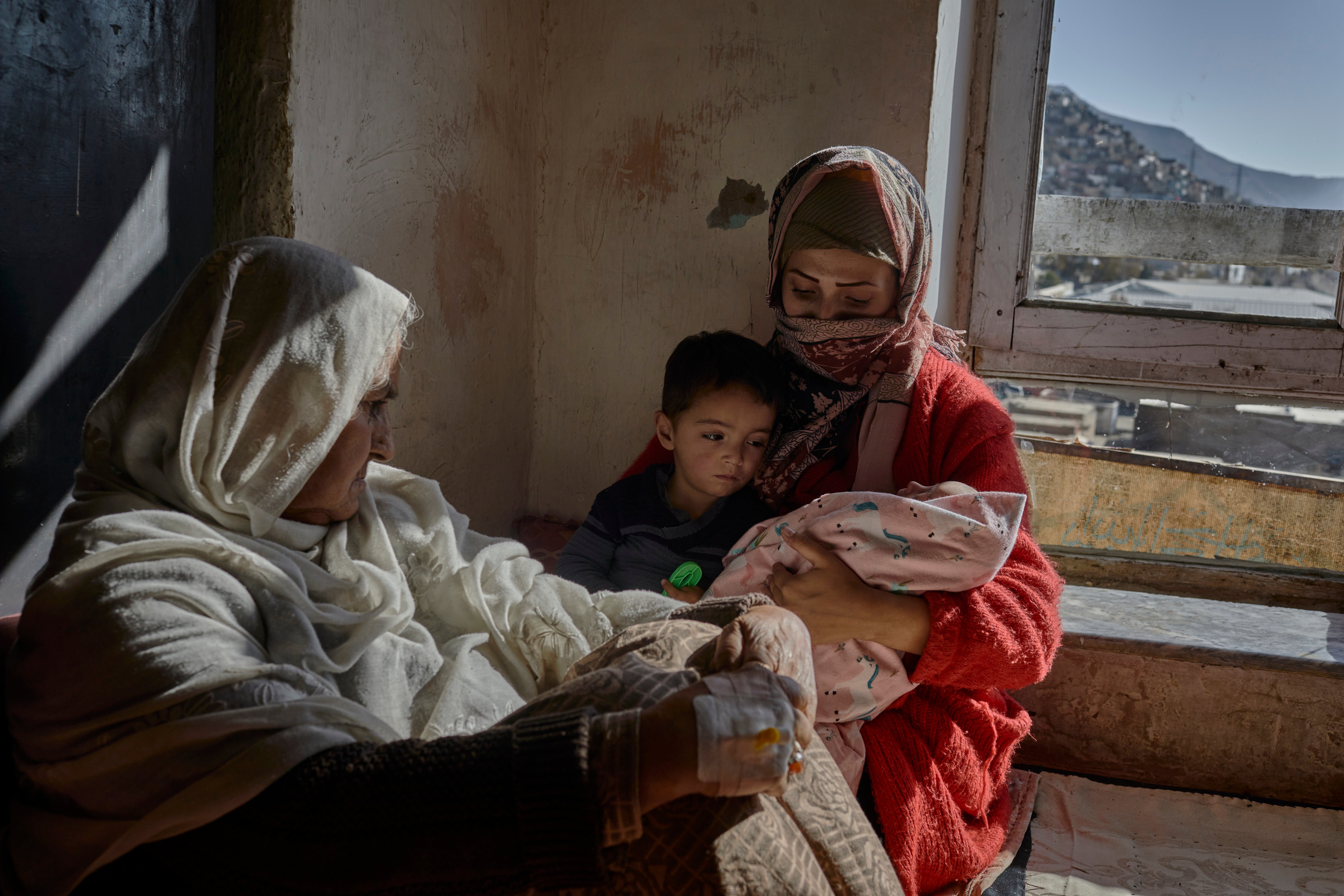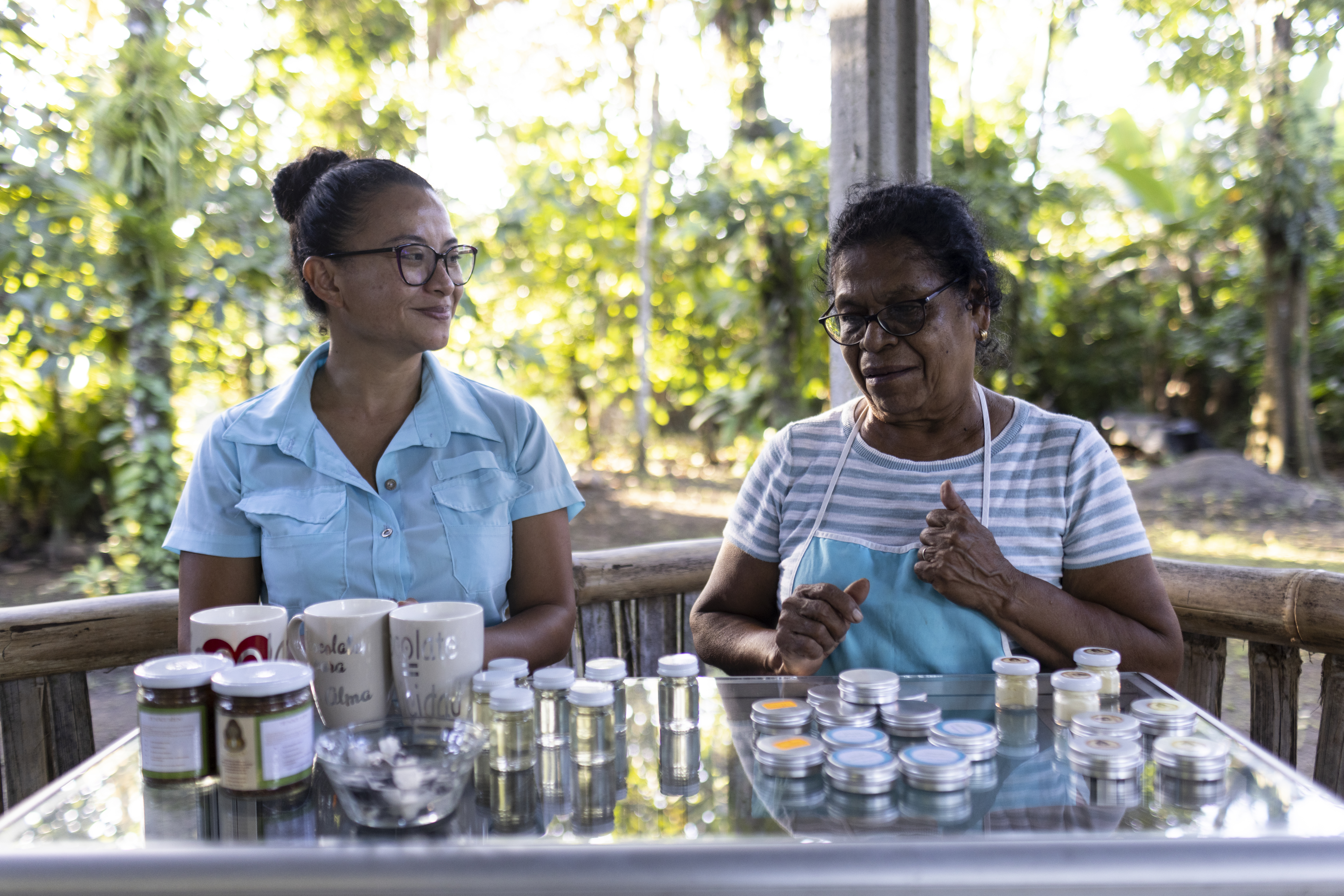Yazidi women welcomed back to the faith
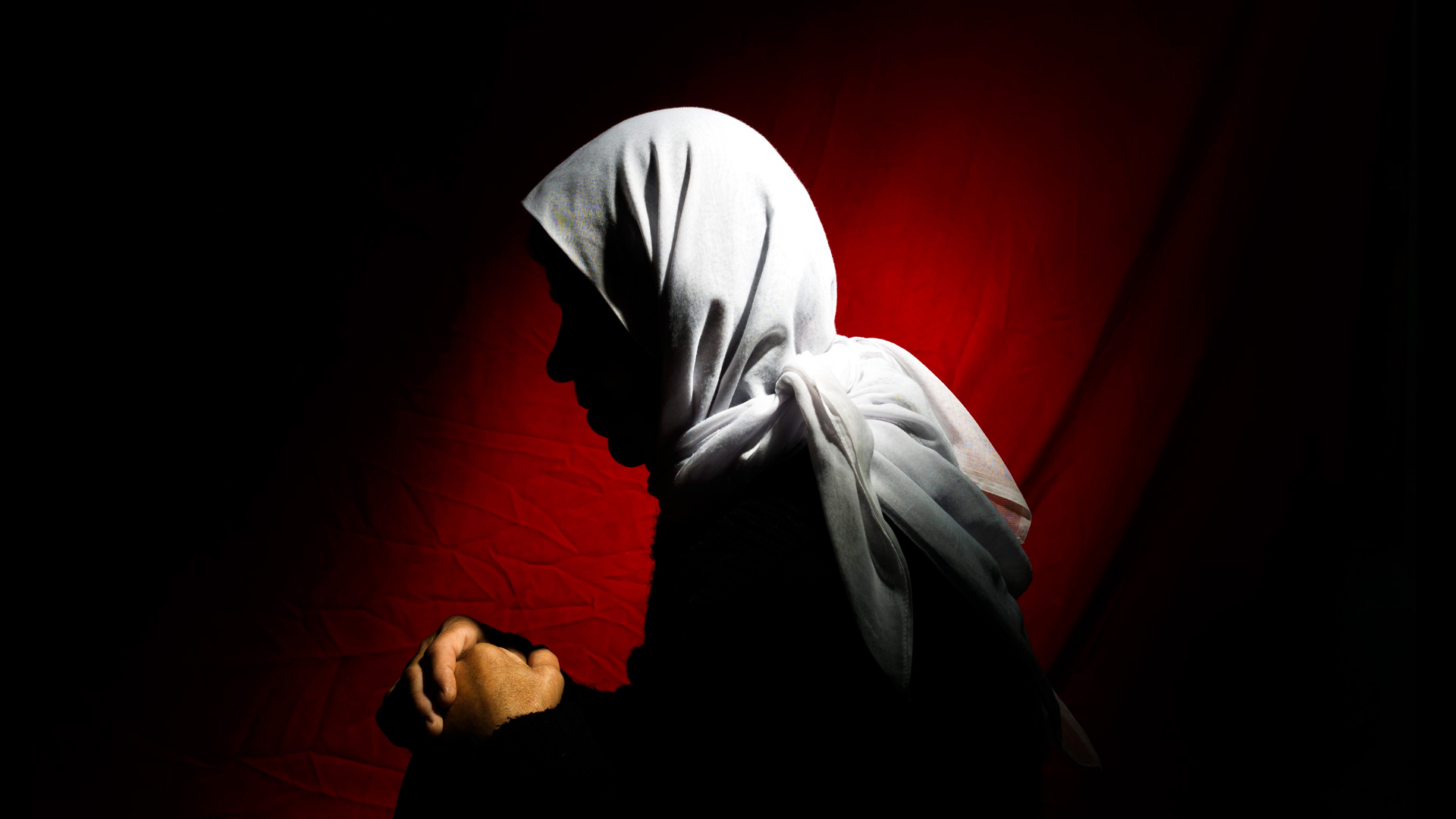
Yazidi women welcomed back to the faith
DOHUK, Iraq – Leila, a 20-year-old Yazidi woman who was taken captive by militants and forced to convert to Islam, escaped in March and has since been reunited with her family. Her story would have been impossible just a few months ago, but she is now one of hundreds of Yazidi women and girls who were forced to convert and later were welcomed back by their community.
Converting to another religion, even under duress, was long considered an unpardonable sin in the Yazidi religion. But in the wake of the mass abductions, forced conversions and the rape of Yazidi women and girls by militants starting in August 2014, that view has softened.
Religious and social Yazidi leaders have issued new teachings since last August, calling on the community to welcome back the abducted women.
Sitting in her tent in a camp on the outskirts of Dohuk, Leila (a pseudonym used to protect her privacy) spoke with little emotion. Requesting that no men be present, a testament to the deep social stigma the subject matter still holds, she recounted how fighters abducted her from her home in Sinjar, Iraq, in August – and how, while in captivity, she was forced to convert to Islam and marry a fighter and then was raped.
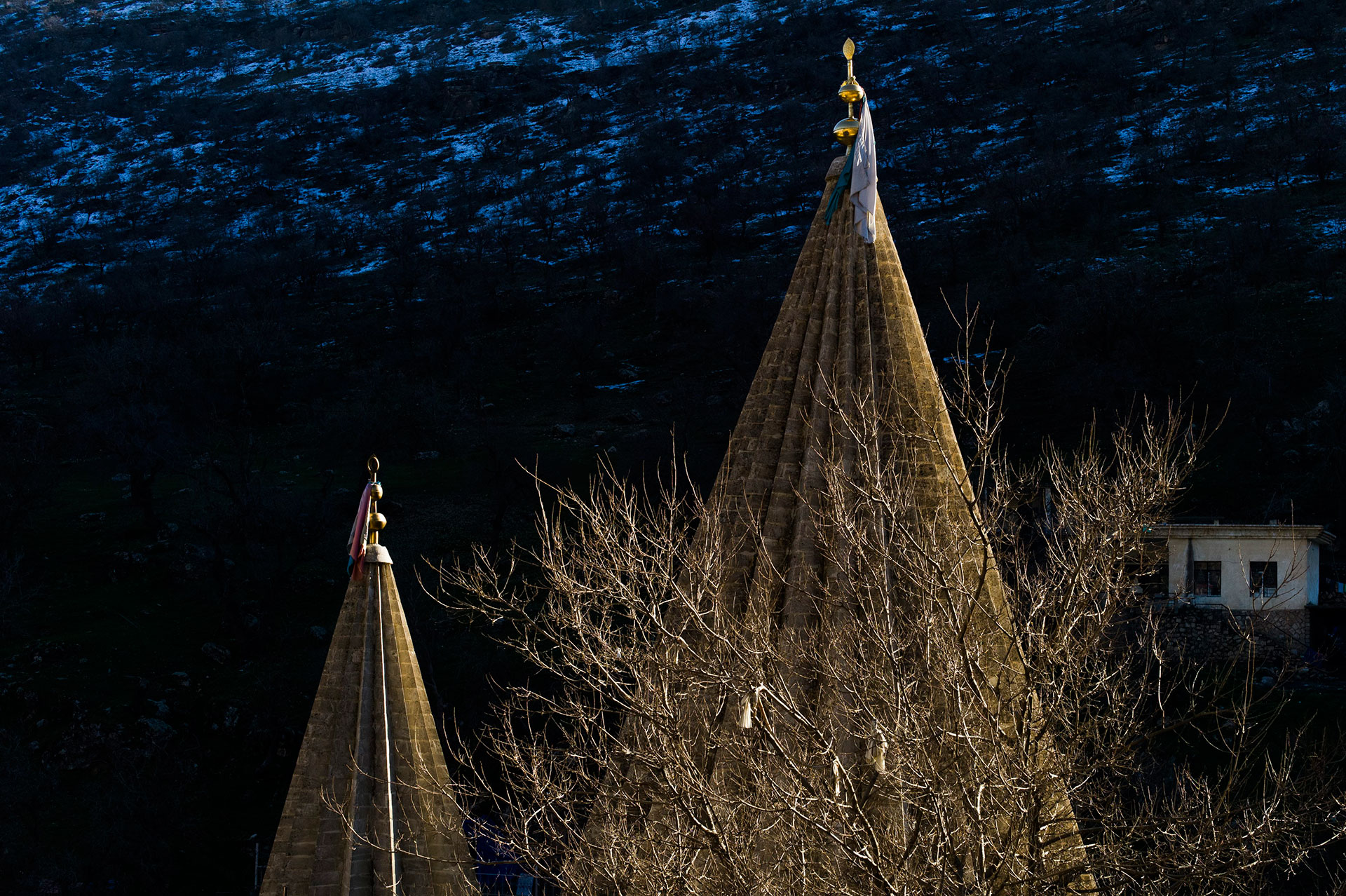
According to a recent Human Rights Watch report, by mid-March nearly a thousand Yazidis had escaped or been released from militant imprisonment, while about 3,000 others remained in captivity. The report described the widespread and systematic use of forced marriages, sexual assault and rape by fighters of hundreds of women and girls.
Adherents of an ancient religion with its roots in Sufism and Zoroastrianism, Yazidis have notably strict marriage laws. Traditionally, they have not accepted converts, and most marriages within the community are arranged according to a three-tier caste system.
A tiny minority in Iraq, Yazidis lived mainly in the isolated Sinjar mountain region, which came under attack in August. Yazidis, like Iraqi Christians, were targeted by militants who said they wanted to "purify" the region of non-Muslims.
"For us, our tradition is the most important thing."
"For us, our tradition is the most important thing," Leila said, explaining why she is so thankful for the new religious interpretation that has let her reunite with her extended family. Sounding more tired than sad, she noted that her mother, father and husband are all still missing – and that her home in Sinjar has been destroyed. She now lives with her uncle's family in a camp for displaced Iraqis.
After her escape in February, she visited the holy village of Lalish and was baptised back into the faith – again, a rite that would have been impossible just a few months ago.
"I don't know how else to say it. I was just so happy, because I had been hurt," she said, referring to the sexual assault she experienced in captivity. "I wanted to be clean again."
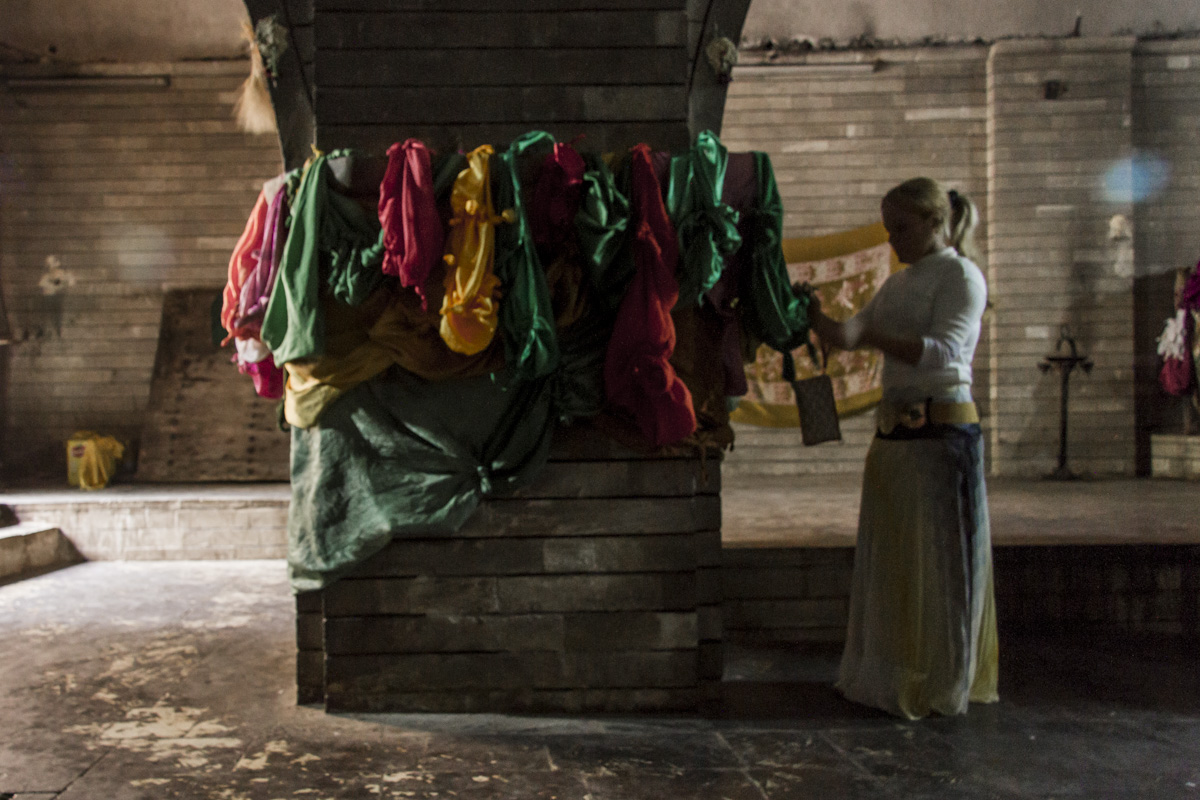
Khidher Domle, a long-time Yazidi activist and media director at the University of Dohuk, takes partial credit for the doctrinal change that has allowed Leila and hundreds of others to return to their families. Initially, Domle says, women who escaped captivity were afraid to even contact their families.
"I told him we really need to work on this process," Domle says, referring to his initial meeting with the top Yazidi spiritual leader, Khurto Hajji Ismail, known as Baba Sheikh. In late August, just days after receiving the first Yazidi women known to have escaped, Domle said he told Baba Sheikh, "We need the religious councils to help those women who returned back."
"We need the religious councils to help those women who returned back."
Domle, not shy about his stature within the Yazidi community, is constantly juggling phone calls from journalists, other Yazidi community leaders and even women still held in captivity. His small office on the edge of Dohuk University campus is stuffed with religious booklets, maps and pamphlets.
"They phone me every day; just this morning I talked to someone," he said, referring to a woman still being held. "They ask us what will happen to them. I tell them, 'Don't worry, convert to Islam, just keep yourself safe.' "
He says it was calls like that, and the sheer scale of the crisis, that motivated him to encourage the Yazidi community to reintegrate women and girls who had been abducted.
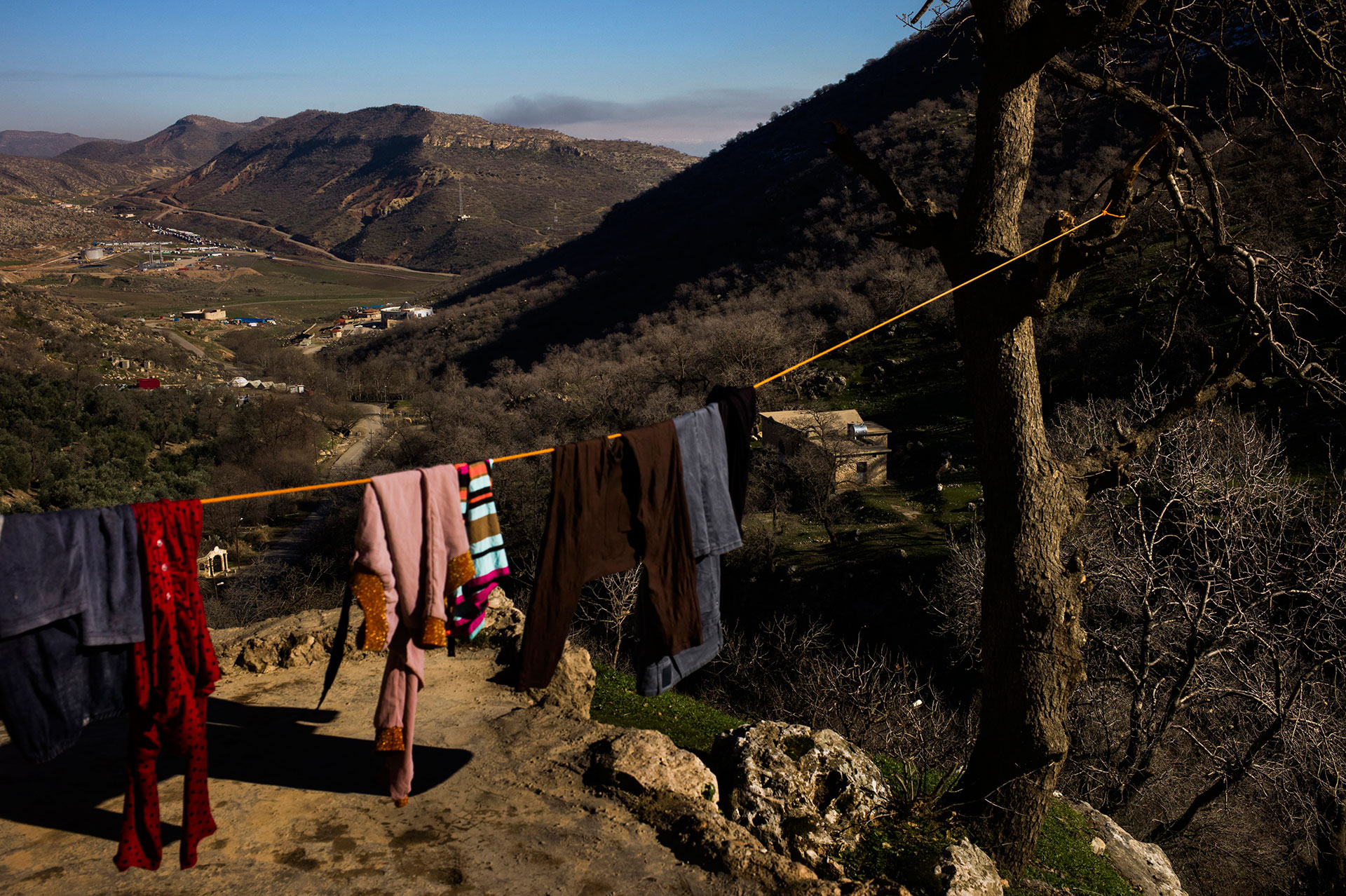
"A lot of the work we do is linked to strengthening an operational response," said Jacqueline Parlevliet, UNHCR's Senior Protection Advisor in Erbil. "We support access to these services through community centres and women's listening centres and we provide access to legal advice, as well as individual protection responses."
In addition to immediate needs like housing and food, what many of these women need when they return from captivity is counselling. UNHCR is working with partner organizations to establish uniform standards for counselling to ensure Yazidi women and girls all receive satisfactory care.
"We've seen a strong call of support from Yazidi leadership" for the released and escaped women and girls," Parlevliet said, "and this is very valuable."
Donatella Rovera, a senior crisis response adviser for Amnesty International, has spent months working in Iraq's Yazidi communities with women who had been held captive. She called the decision by Yazidi religious authorities to welcome the women back into the faith "unprecedented."
"The change in attitude likely has several explanations," she said. But perhaps the most powerful motivator was the scale of the crisis – the fact that the abductions could not be explained away as "shameful" individual cases.
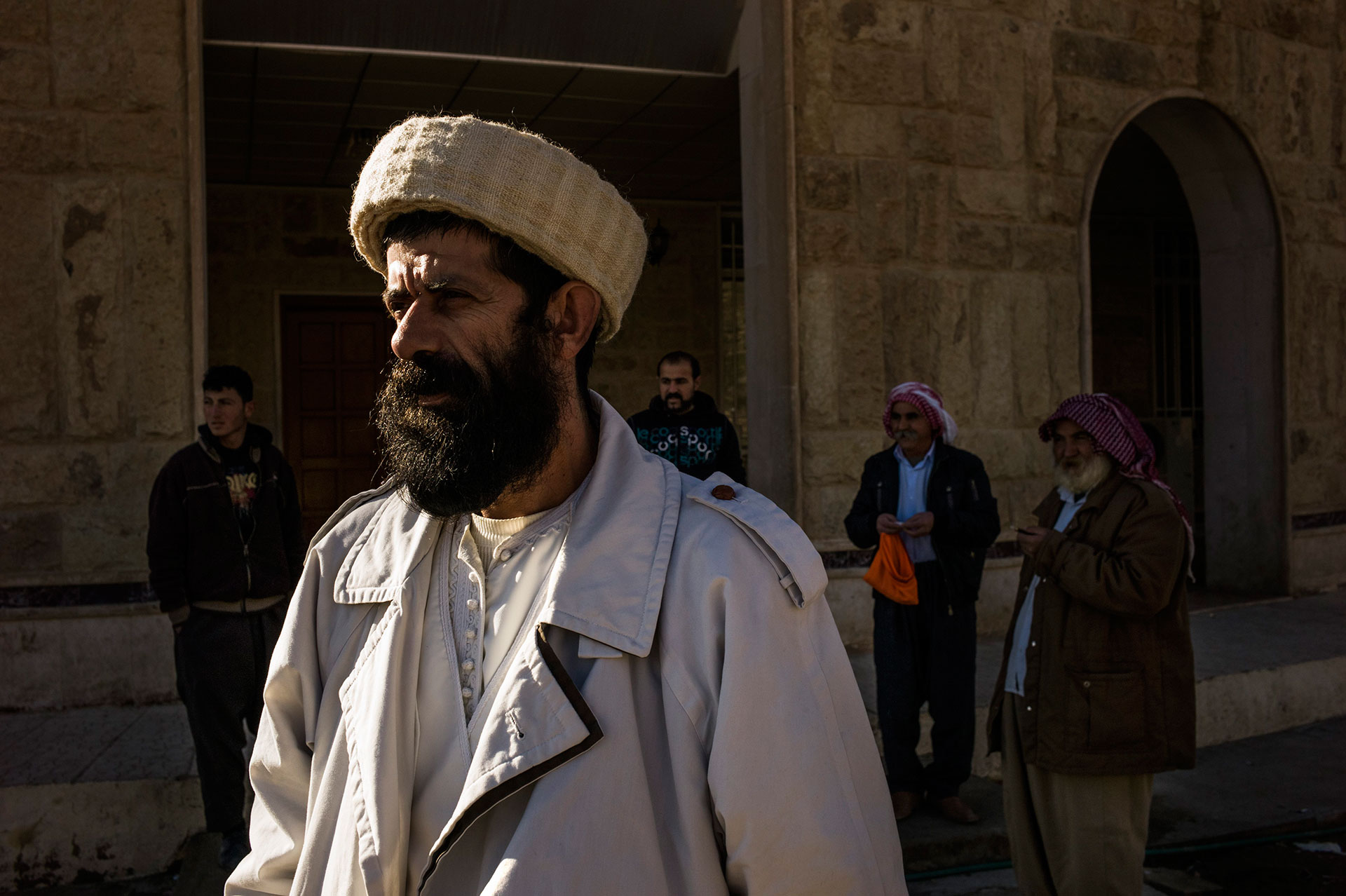
The first group of women who escaped captivity in August sat down with Baba Sheikh, who personally welcomed them back into the faith, assuring their families that they were still Yazidi. As the spiritual leader, he has the power to offer pardons, but when it comes to rewriting doctrine he's expected to meet with a council of religious advisors. Initially, Yazidi religious leaders spoke privately to escapees and their families, but as the numbers grew, Domle says he felt the need for an official, public change in doctrine.
"On the seventh of September we all sat here," Domle said, describing a pivotal meeting with Baba Sheikh, his brother and two other activists. Domle recalled presenting the men with a draft statement that would allow women who had been forced to convert to Islam to remain Yazidi, and calling on all Yazidis to help the former captives to reintegrate into the community.
"This is a very big thing in Yazidi history."
"I still have the copy right here," Domle says, beaming, as he calls up the document on his computer. "This is a very big thing in Yazidi history."
Baba Sheikh and his advisors agreed to the changes, and slowly the information began to filter through the community.
So far, Domle says, it's had the desired effect: Women and girls who had been held captive are being reintegrated with very little stigma.
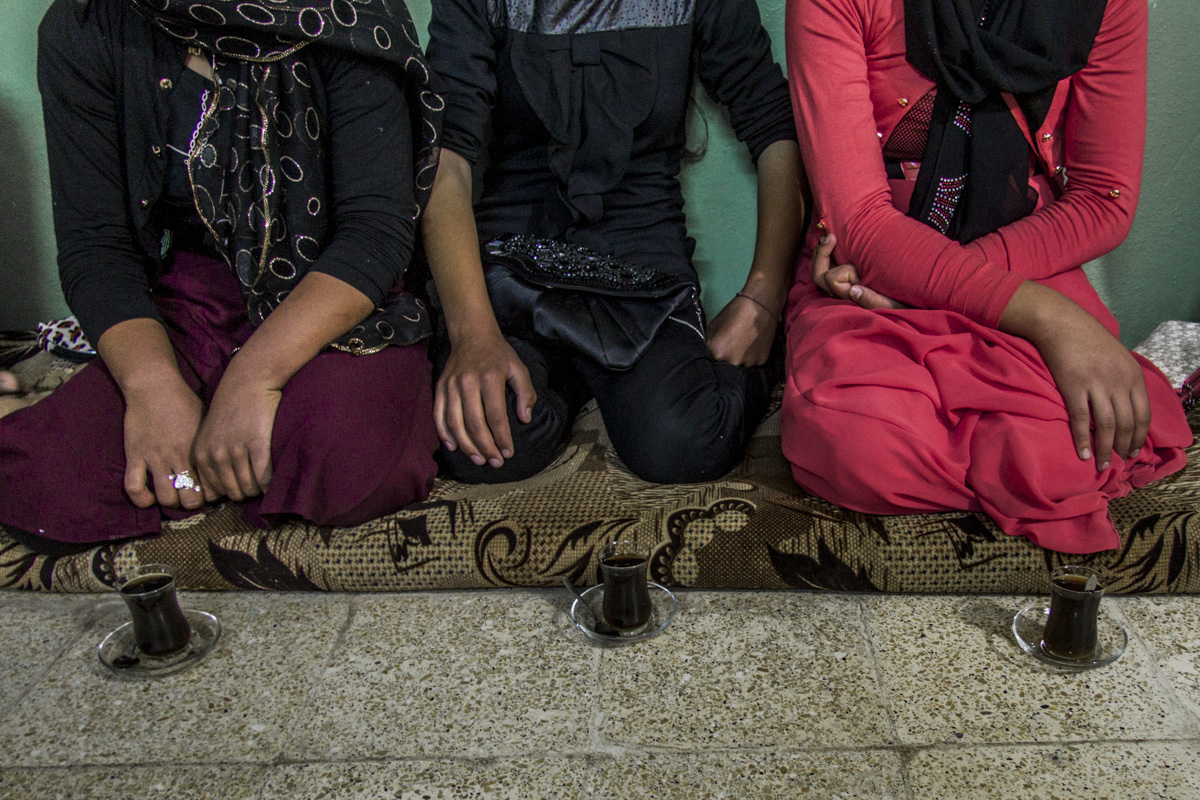
Leila, the young Yazidi woman who escaped captivity in February, agrees that the community support and the religious ceremony have helped her cope with the trauma of captivity. But she said it hasn't erased her ordeal completely.
"I don't feel back to normal," she said. "I don't think I'll ever be normal again."
Domle admits he also worries about the long-term future of Iraq's Yazidis. Despite his best efforts, he fears that the trauma they have endured might fracture his community further down the line.
"Of course I'm happy with the work we've done," he said from behind his desk. "But I'm sure the big challenges will come later."



